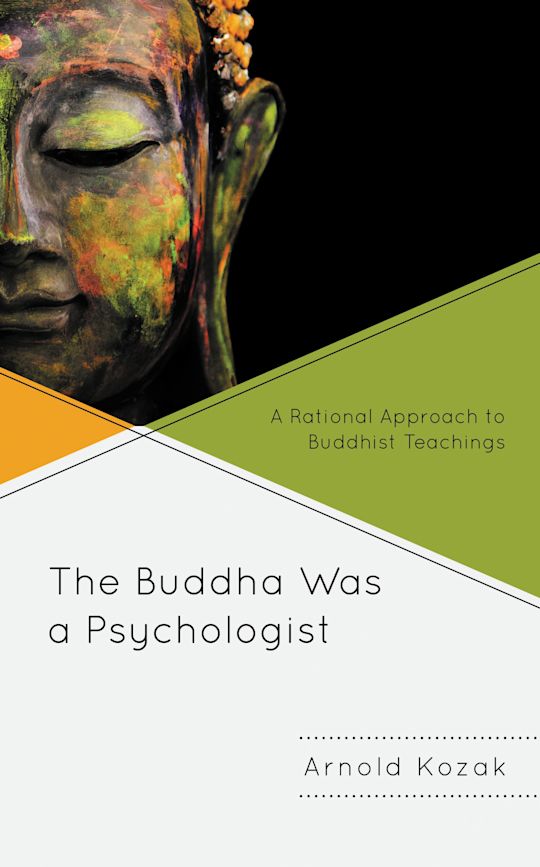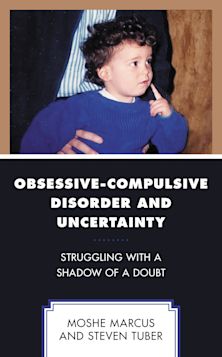- Home
- ACADEMIC
- Psychology
- Psychology - Other
- The Buddha Was a Psychologist
The Buddha Was a Psychologist
A Rational Approach to Buddhist Teachings
The Buddha Was a Psychologist
A Rational Approach to Buddhist Teachings
You must sign in to add this item to your wishlist. Please sign in or create an account
Description
In The Buddha Was a Psychologist: A Rational Approach to Buddhist Teachings, Arnold Kozak argues for a secular and psychological interpretation of the Buddha’s wisdom, with a particular focus on his mind model and use of metaphor. Kozak closely examines the Buddha’s hagiography, analyzing Buddhist dharma through the contexts of neuroscience, cognitive linguistics, and evolutionary psychology.
Table of Contents
Chapter 1: The Legend of the Buddha: History, Myth, and Hagiography
Chapter 2: The Hermeneutical Buddha: What He Taught, What He Thought (Maybe)
Part II: The Buddha's Pedagogical Project: The Ennobling Praxes (aka Four Noble Truths)
Chapter 3: The First Ennobling Praxis: What is the Problem?
Chapter 4: The Second Ennobling Praxis: Getting to the Root of the Problem
Chapter 5: The Third Ennobling Praxis: Can the Problem Be Resolved?
Chapter 6: The Fourth Ennobling Praxis: Resolving the Problem
Part III: Mind on Fire: The Buddha's Psychological Map
Chapter 7: Form: Brain Architecture and the Neuroplastic Forest of Self
Chapter 8: Perception: Categorization
Chapter 9: Feeling: Pain and Pleasure Drive Evolution's Primary Agendas (And Give Rise to a Sense of the One Having Pleasure and Pain)
Chapter 10: Mental Fabrication and the Modular Self
Chapter 11: Consciousness: Apparently Ubiquitous, Certainly Overestimated
Product details
| Published | 07 May 2021 |
|---|---|
| Format | Ebook (PDF) |
| Edition | 1st |
| Extent | 1 |
| ISBN | 9781978788367 |
| Imprint | Lexington Books |
| Publisher | Bloomsbury Publishing |
About the contributors
Reviews
-
Arnold Kozak’s declared intention to ‘reclaim’ the Buddha from Buddhism is an essential and defining project for the varieties of Buddhism in the West. Lacking nativist credentials, Buddhism in the West is always in need of a rescuing of its core principles. Kozak’s presentation of the Buddha as a psychologist may not be the last word but it is one of the first and few to boldly demand our attention. It seems inevitable that Buddhism in the West will be secularized and psychologized, and the hope in Kozak’s and similar projects is that we can still rescue the timeless wisdom of the Buddha and hold it in respectful alignment with the deep psychological truths of our own time. Kozak’s book is timely and much-needed.
Mu Soeng, former senior scholar, Barre Center for Buddhist Studies
-
In this well-reasoned account of the Buddha and his teachings, Arnold Kozak argues for a contemporary, revised Buddha who is practical, accessible, helpful, wise, and deeply knowledgeable about human suffering. This Buddha could sit across from you in a therapy session and help you access extraordinary relief by showing you the nature of reality. You will walk away from this book with a fresh and historically well-informed understanding of what the Buddha taught and how you can use it.
Polly Young-Eisendrath, University of Vermont; author of Love Between Equals: Relationship as a Spiritual Path
-
In this impressive work, Arnold Kozak presents us with a Buddha who truly has relevance for us in the twenty-first century. Kozak's The Buddha Was a Psychologist cogently and persuasively makes the case for the Buddha as the very first psychologist and the first to utilize a proto-psychological language. By freeing the Buddha from the shackles of religious dogma, Kozak gives us not only a secular Buddha, but also a far more interesting thinker than the one presented by Buddhist traditions. Throughout this work, Kozak presents both an important and highly plausible case for the Buddha as both the precursor and match for many contemporary psychological approaches. I thoroughly recommend this book for anybody who is interested in investigating psychological approaches to the Buddha's teachings from a secular perspective.
John Peacock, Bodhi College

ONLINE RESOURCES
Bloomsbury Collections
This book is available on Bloomsbury Collections where your library has access.



































